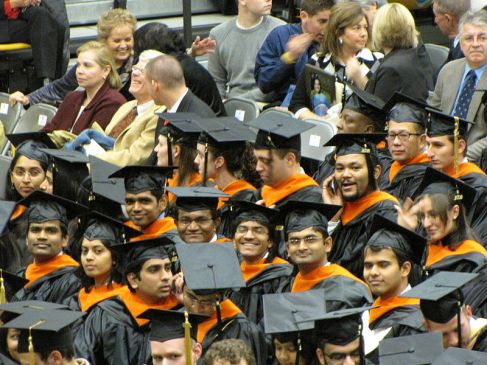Today (4TH April) Sheffield University professor Paul White has stated that “British Universities should ban country-specific student societies to encourage foreign student integration at universities” to the Westminster Higher Education Forum conference on internationalisation in London. Although he admits it as being “social engineering”, the pro-vice chancellor for learning and teaching said these societies create “close communities of students who don’t interact with each other”, citing that Chinese, Indian and British students all tend to stick with their national groups, as examples.
The statement comes with evidence from the Faculty of Sheffield University-city College, in Thessaloniki Greece, where it banned national student societies, to increase integration of Serbs, Kosovans and Macedonians.
Integration of foreign students is a challenge of all Universities not just in Britain and Greece, and White is right in noting the importance of integration. Henderson et al (2011) article overviews many research conducted on International student integration. The article confirms that those who had more contact with host nationals reported higher levels of satisfaction, less homesickness, and less loneliness in their study abroad experience. However, the article also emphasises the importance of country specific societies. They enable co-national friendships at a time when many may be experiencing culture shock-being placed in completely new surroundings and customs. These groups’ facilitate discussions and intellectual exchange with other co-national students experiencing the same emotions, serving to attenuate the stress often associated with culture shock.
In line with Smith, the piece confirms co-national friendships offer short-term support but hinder the long-term adaptation process. But instead of looking to remove supportive medium instrumental to the beginning of foreign students’ duration, we should see why often integration isn’t facilitated in conjunction with national societies. Firstly, many International students have poor grasp of the host nation language, which poses a challenge in making host nation friendships. Second, many students report discrimination or prejudges against their nationality/ethnicity. Third, international students are entering an environment where friendships have already established, meaning reduced openness of host nationals compared to co nationals to make connections.
Removing national societies may induced greater integration, but won’t resolve these underlying issues. By resolving these however, universities will develop integration while also providing the supportive network of national societies needed. Furthermore, while immersing one’s self into another culture may be a key aspect to study aboard, this is not the motivation of all students: Some students decisions are informed purely on extending their knowledge base, far from wanting to experience a different culture, simply that a foreign university holds a greater opportunity to respective domestic others . In this context, a strong national society may even be a pull factor of Universities in attracting important foreign students.
Housing directors should mix international students with host nationals. This will increase the opportunity to develop friendship. But also as the article states, it removes stereotype assumptions of individuals and develops deeper understanding, so will reduce prejudice. Developing ways for universities to increase English skills of students is key, while also encouraging faculty staff to facilitate integration during study and group work. White stated he is “throwing the idea out there”, and in doing so has raised a serious issue within universities. Removing national societies worked in Greece, where identify tensions are higher. In Britain impetus should focus on other ways in conjunction with societies. Universities are best not catching this one.
Read-Henderson et al. 2011. An analysis of friendship networks, social connectedness, homesickness, and satisfaction levels of international students. International Journal of International Relations, 35 (3), pp. 281-295.



